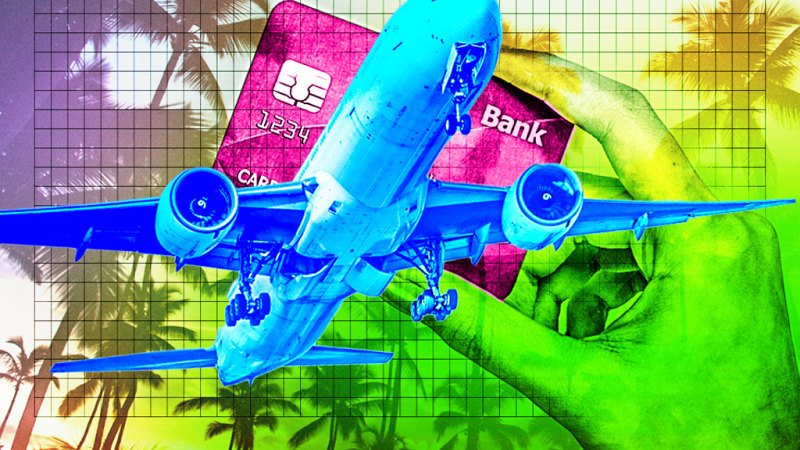If you’re thinking of getting a credit card so you can rack up frequent flyer points, consider this: many programs are no longer the “goldmine” they once were.
If you’re thinking of getting a credit card so you can rack up frequent flyer points, consider this: many programs are no longer the “goldmine” they once were.
Opinion
February 9, 2025 — 4.30am
Real Money, a free weekly newsletter giving expert tips on how to save, invest and make the most of your money, is sent every Sunday. You’re reading an excerpt − sign up to get the whole newsletter in your inbox.
Every now and again, my friends or family will ask me a money-related question, assuming because I write about money that I might know a thing or two about it (I’m no expert, and this is not financial advice). Often, these questions are related to super or investing, but recently, they’ve increasingly been on credit cards, and more specifically, credit card points and rewards.

It’s easy to see why: my generation (Millennials, but we’re cool enough to be Gen Zs) likely grew up with parents who had a credit card and who probably accrued a healthy swag of points on those cards, using them for cheap flights or upgrades.
We’ve also seen the articles/TikToks/Reels of travellers who seemingly travel for free off the back of their points hustling, thinking, could it be too good to be true? And I’m sorry to tell you, but it (just about) is.
Loading
What’s the problem?
When frequent flyer programs started, they were a pretty simple concept: fly with us, and we’ll reward you with points you can then use to get discounts on future flights. But the whole game changed when airlines started giving away points by the bucketload through deals with credit card companies, reaching fever pitch in the early 2000s, with hundreds of thousands of points on offer for signing up to a new card.
However, since then, the market for frequent flyer points has become less lucrative, thanks in part by the pandemic, and persistent inflation. The calculation for points isn’t as straightforward as it once was, and flight upgrades are harder to get, and less frequent.
What you can do about it
Advertisement
If you’re pondering whether to get a credit card to start racking up those sweet, sweet points, here are some things to consider:
- More spending, fewer rewards: Graham Cooke, head of consumer research at Finder, agrees that frequent flyer programs have lost their lustre, noting they’re not the “goldmine” they once were. “A decade ago, earning points was simple – just put your spending on the card and watch the points roll in. Now, earn rates are lower, points caps exist, and redemption costs keep increasing,” Cooke says. Consumers are now required to spend far more – tens of thousands of dollars in some cases – to get a free flight. According to Qantas, you receive 0.75 points per $1 spent at the base rate, with one point being worth around 2 cents when used on economy flights.
- Lower availability, and higher fees: One of the most significant changes to frequent flyer programs recently is not so much the value of points themselves, but the availability of flights. Adele Eliseo, frequent flyer expert and founder of The Champagne Mile, says actually getting a flight using your points isn’t a guarantee. “More people are earning points than ever, yet airlines haven’t increased reward seat allocations to match this growing demand,” she says. Fees are also on the up, as airlines increase the carrier charges payable on rewards seats, particularly for long-haul travel. “Travellers need to factor in these ‘hidden’ fees when assessing the cost of a redemption,” Eliseo says.
- Constant devaluation: It’s important to remember that points are not cash, and their value is determined entirely by the company which operates the program. Unfortunately, those companies are fond of regularly devaluing those points – just last month Qantas dropped the value of its points by 15 to 20 per cent for many of its rewards options, having also previously done so in 2019. If you’re banking your points and waiting for the right time to spend them, you could wake up one day and find they’re worth less than before.
- Still value to be found: Despite this, Cooke and Eliseo agree there is still plenty of value to be found in frequent flyer points – if you’re willing to put in the work. Premium cabin redemptions can still deliver 5 cents or more value per point, Eliseo says, and maximising sign-up bonuses and redeeming your points for high-value rewards like business-class flights can also help you make the most of it. Overall, don’t expect to sit back and let it all roll in. “The best rewards go to those who are strategic, disciplined and willing to work the system,” Cooke says.
- Do you really need a credit card anyway? Lastly, it’s worth considering if a credit card is right for you, full stop. Annual fees can be onerous, and if you don’t pay off the full balance each month you can be stung with high-interest rates. “Financial flexibility is key,” says Cooke. “Locking yourself into a high-fee credit card for the sake of points isn’t always the best move.”
Advice given in this article is general in nature and is not intended to influence readers’ decisions about investing or financial products. They should always seek their own professional advice that takes into account their own personal circumstances before making any financial decisions.
Dominic Powell is the Money Editor for the Sydney Morning Herald and The Age.Connect via Twitter or email.
Loading
Discover more from World Byte News
Subscribe to get the latest posts sent to your email.




